From WWI to Present Day
By: Erin Peterson | Categories: Tech History
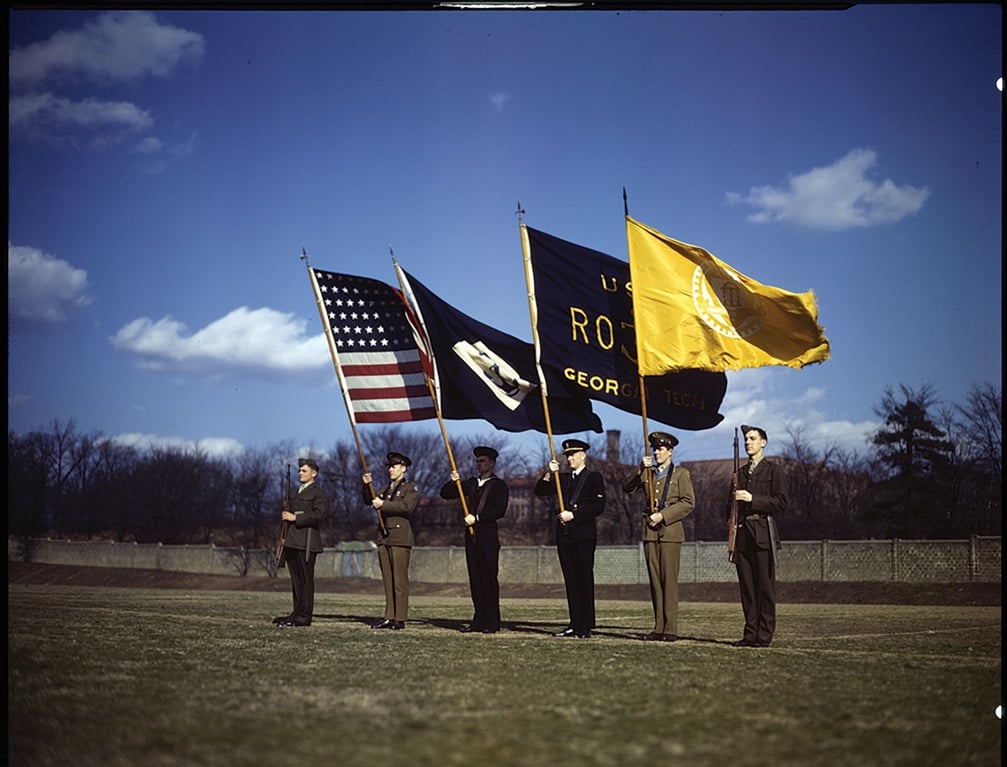
For more than 100 years members of the Georgia Tech community have served their country with honor and distinction. Their stories of service—including some of their efforts beyond the military—are both remarkable and inspiring.
People from Georgia Tech have served in every branch, including the newest military branch, the United States Space Force. They have earned Purple Hearts and Medals of Honor. Two of the 40 men in U.S. history who have served as Chief of Staff of the Army—Maj. Gen. Leonard Wood and Gen. James C. McConville, MS AE 90—trace their histories back to Georgia Tech.
Here, we share just a few of their stories and accomplishments.
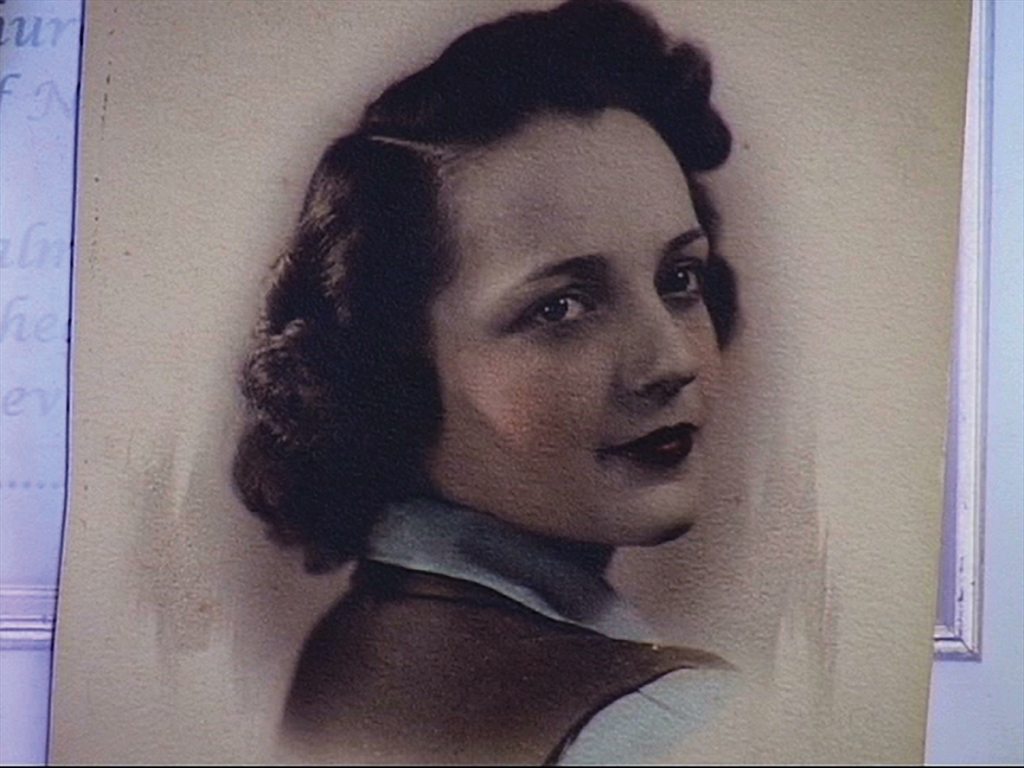
Camille Berry, WWII Night School Alumna
Camille Berry was working in the Georgia State Employment Office in 1942 when she learned that a shipyard in Brunswick, Ga., was building “Liberty ships” to transport supplies for the troops. The company was frantically searching for workers. “I wanted to do my part in the war effort,” she recalls about her decision to apply for a job. “They immediately hired me.”
Trained as a secretary, she was able to start immediately in the company’s safety office. It wasn’t long before the head of safety engineering—himself a Georgia Tech graduate—suggested that Berry enroll at Georgia Tech’s Evening School of Applied Sciences to get the training she needed to become a certified safety engineer. She did, she passed the required exams, and she was promoted to assistant to the head safety engineer.
The work, though satisfying in many ways, was grueling. The days were already hot and steamy, and the riveters—who became the face of the war effort at home through the iconic “Rosie the Riveter” posters—wore heavy, one-piece uniforms. The clothing was designed to protect them from sparks from the acetylene torches they used during their shifts. It was one of Berry’s jobs to make sure that workers followed the proper protocols.
“Every day, we put on our hard-toed shoes and hard hats and walked through the ship they were building,” she recalls. Berry reminded workers to keep their uniforms zipped all the way to their necks, despite the heat. When they didn’t, the sparks from the torches could land on their necks and chest, sticking to them and burning them. “Then, they’d have to run into the first-aid station to be treated,” she says.
While there were occasional injuries, for which Berry filled out insurance paperwork, Berry was proud that there were no major injuries on her ship, even with the urgency of the effort.
Berry marvels at the remarkable work that she and her colleagues were able to do, particularly since so few had been trained in the work before the war. “All kinds of people worked in the shipyard—pharmacists, farmers, even the director of a symphony orchestra who formed a shipyard orchestra and chorus.” Berry, a talented singer, performed two solos on the ship’s launch day.
The day that the ship was unveiled, the governor came and his wife christened the ship, Berry recalls. “We had a great big celebration.” After, they rolled the ships into the water.
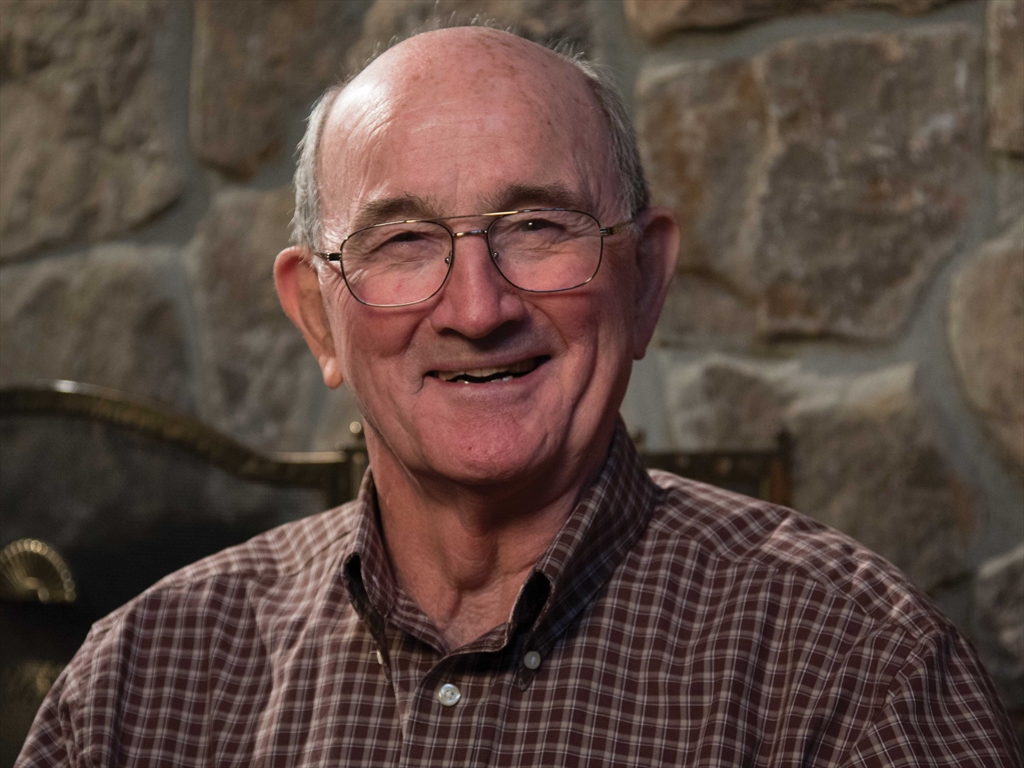
Vance Gammons, Army Veteran
Vance Gammons, IE 58, was steeped in military culture early on: He attended high school at Sewanee Military Academy in Tennessee, and he was part of the Army ROTC at Georgia Tech.
After commissioning in the Army, he trained to become a helicopter pilot. His first assignment was in Korea, where he says he gained an appreciation for how other people lived. In his first tour in Vietnam, he transported a range of leaders, including some who specialized in psychological warfare.
During his second Vietnam tour, while he was flying in a helicopter with only a young second lieutenant, the helicopter was hit by a bullet. “We were at a low level, just over the trees, and we took a bullet through the bottom of the helicopter,” he recalls. Fragments of the bullet went into Gammons’ right hand, and it also took out the cables that controlled the tail rotor. “[We] flew a little sideways back to a strip and landed safely,” he says.
He attributes his successful landing to the military’s rigorous training and discipline. “If you are injured, and you have something that’s necessary for you to do, your training teaches you what you need to get it done,” he says. “I did what I was taught.”
Gammons returned to the United States and spent time recuperating, teaching others to fly, and undergoing additional training to become a fixed-wing pilot. He went on to do one more tour in Vietnam, where he commanded an assault aviation company. After his final tour, he spent another 12 years supporting ROTC programs at universities and in other recruiting efforts.
By the time Gammons retired in 1982, he had received the Distinguished Flying Cross, 26 Air Medals, and a Purple Heart.
Military service allowed him to see much of the world and immersed him in many cultures. He says he has been grateful not just for the chance to learn how others live, but also for what that allowed him to internalize about what it means to live in the United States. “I could look at the circumstances around me, wherever I was, for what they were. And I could appreciate them. And I could also be appreciative of the United States of America.”
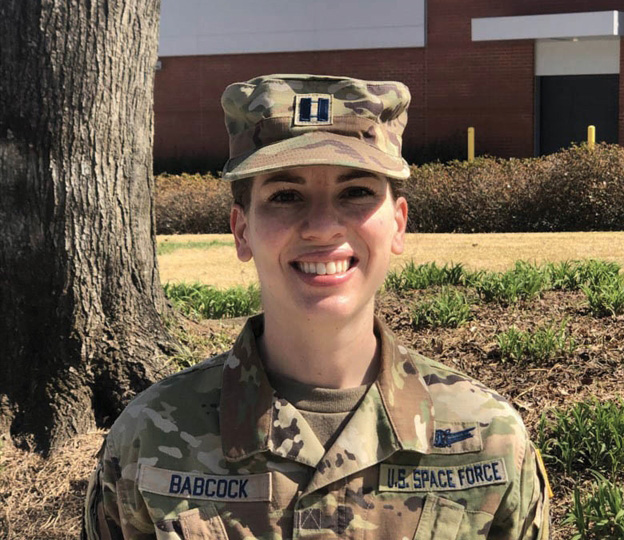
Chloe Babcock, U.S. Space Force Captain
Capt. Chloe Babcock had been in the Air Force for a few years, working in space operations, when rumblings of a new military branch became reality. The U.S. Space Force was established in 2019, and Babcock transferred into the branch to continue as a space operations officer who focuses on orbital warfare.
While aspects of what has now become Space Force have been around for decades and governed by the Air Force, the strategies that motivate Babcock’s work in orbital warfare have advanced significantly in recent years. “In the 1980s and 1990s, we didn’t have adversaries or hostile acts in space; we were [mostly] the only players there, so we weren’t thinking in terms of war in the space domain,” she explains. “That’s changed a lot in the past decade, and we now, as a space community, have to think of it as something to protect and defend.” She is inspired by the words of President John. F. Kennedy, who proclaimed that space would not be “governed by a hostile flag of conquest, but by a banner of freedom and peace.”
Because the Space Force is quite new and nimble compared to other branches, Babcock has been able to carve out a career path that specifically suits her. While much of her work is classified, she is pursuing a master’s degree in operations research at Tech to help her make a big impact in her role while accelerating her career trajectory. “Because [the Space Force] does work at such an immense scale, any optimization that we can make that can save us 1 or 2 percent can be worth millions. That’s money we can use to fund other areas,” she says.
She says she’s particularly grateful to be at Georgia Tech because her operations research program is known to encourage its students to think expansively about what is possible. “It’s easy to be given a system or a problem and say, ‘this is how we solved this problem in the past,’ ” she says. “But in operations research at Georgia Tech, they’re always pushing you to think about a different way of solving a problem. There might not be a checklist, so you have to think creatively.”
For a new role in a new branch in a new realm, this innovative approach may be just what is needed. “I think there’s something in the human spirit that makes us look up and ask: ‘What else is out there?’ And I’ve been learning and absorbing and preparing for the next step,” she says. “It feels like we’re on the cusp of something big."
Medal-Worthy Efforts
The Medal of Honor is awarded to members of the U.S. Armed Forces for valor and combat and is the highest honor of its type. Since 1861, just over 3,500 individuals have been recognized, including four alumni and Gen. Leonard Wood, who played and coached for Tech's football team for a month in 1893.
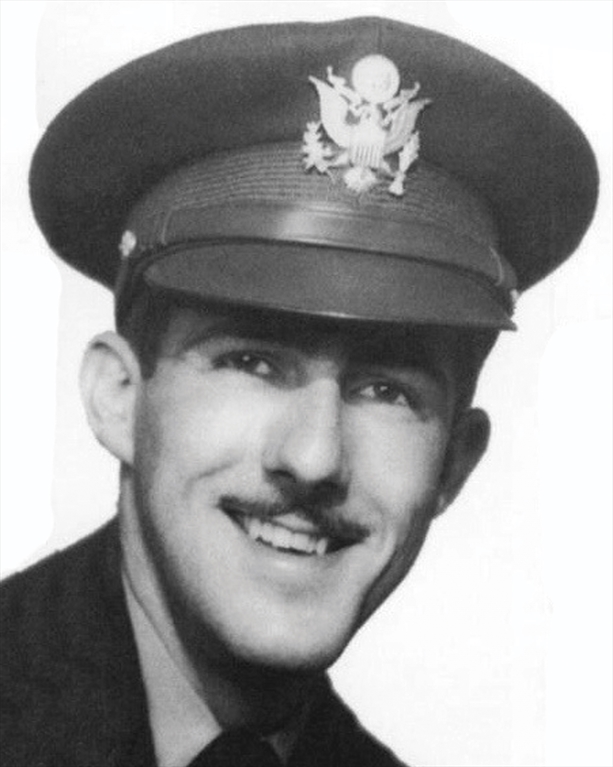 “He Almost Defied Reality"
“He Almost Defied Reality"
Known for his skill flying a P-38, Maj. Thomas B. McGuire, Jr., who attended Tech from 1938 to 1941, was a World War II flying ace and commander of the 431st Squadron of the 475th Fighter Group. Fellow pilots, said aviation history writer Stephen Sherman, “felt that McGuire could do things in a P-38 that were virtually impossible. His skill with the P-38 was so extraordinary, he almost defied reality.” McGuire died in 1945 and was awarded the Medal of Honor posthumously in 1946.
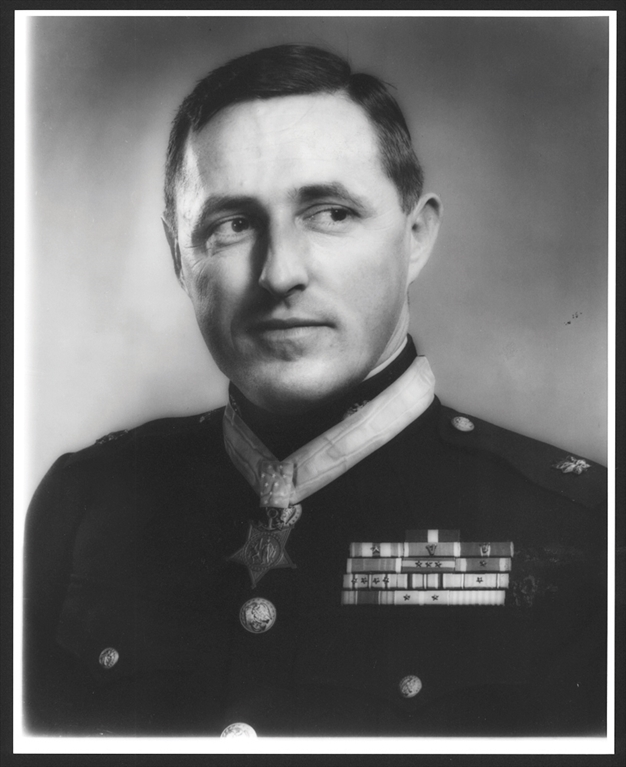 Three Decades of Valor
Three Decades of Valor
A 33-year veteran, Gen. Raymond G. Davis, CHE 38, assistant commandant of the U.S. Marine Corps, served in World War II, Korea, and Vietnam. He received the Medal of Honor in 1952 for leadership at North Korea’s Chosin Reservoir. Davis, then a lieutenant colonel, led his battalion through fierce firefights, marched over mountains in a snowstorm, and rescued Fox Company, 2nd battalion, 7th Marine Regiment. The Marine Combat Readiness Building in Quantico, Va., and a school in Stockbridge, Ga., are named for him.
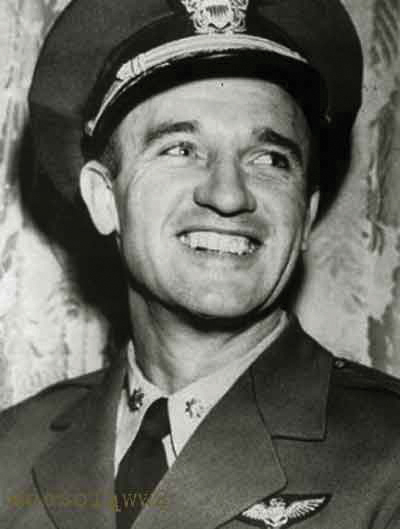 "Fabled Fifteen" Leader
"Fabled Fifteen" Leader
Cpt. David McCampbell, who spent one year at Tech in 1929, was a Navy flying ace and commander of Air Group 15 in the first and second battles of the Philippine Sea in 1944. The group was later dubbed the “Fabled Fifteen” for its successful efforts. McCampbell was considered the Navy’s “Ace of Aces.” Pres. Franklin Roosevelt presented him with the Medal of Honor in 1945. The guided-missile destroyer USS McCampbell (DDG-85) and a passenger terminal at Palm Beach Airport are named in recognition of him. McCampbell died in 1996.
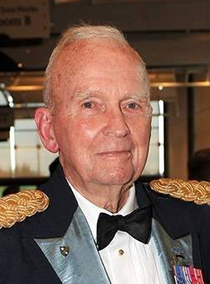 Korean War Hero
Korean War Hero
In Korea, Colonel Ralph Puckett Jr.’s company of 57 Rangers was part of an offensive strategy to advance into the north. They were ordered to secure Hill 205 near Unsan, Korea. While on the front lines, Puckett, Cls 47, ran in front of his command several times, exposing himself to enemy fire so that his Rangers could spot the enemy shooters. He was wounded, but he continued to fight and take care of his company throughout the night. At one point, as he was lying with several gunshot wounds, he told his company to leave him behind and withdraw, but they disobeyed his order and carried him to safety.
Leadership for the Nation and for Georgia Tech
Georgia Tech alumni include dozens of high-ranking flag officers, as well as several alumni with stellar military careers who have returned to the Institute.
Retired four-star Gen. Philip Breedlove, CE 77, served as NATO’s Supreme Allied Commander Europe and the U.S. European Command Commander. He is a Distinguished Professor of the Practice and CETS Senior Fellow.
Retired U.S. Navy Adm. James A. "Sandy" Winnefeld Jr., AE 78 flew the F-14 Tomcat and served as the ninth Vice Chairman of the Joint Chiefs of Staff. He is a Distinguished Professor of the Practice and CISTP Senior Fellow.
Retired Maj. Gen. Ronald Johnson, MS OR 85, served as COO of the U.S. Army Corps of Engineers (USACE), the second-highest-ranking senior engineering staff officer for USACE. He is a Professor of the Practice in ISyE and Faculty Leadership Fellow at Georgia Tech.
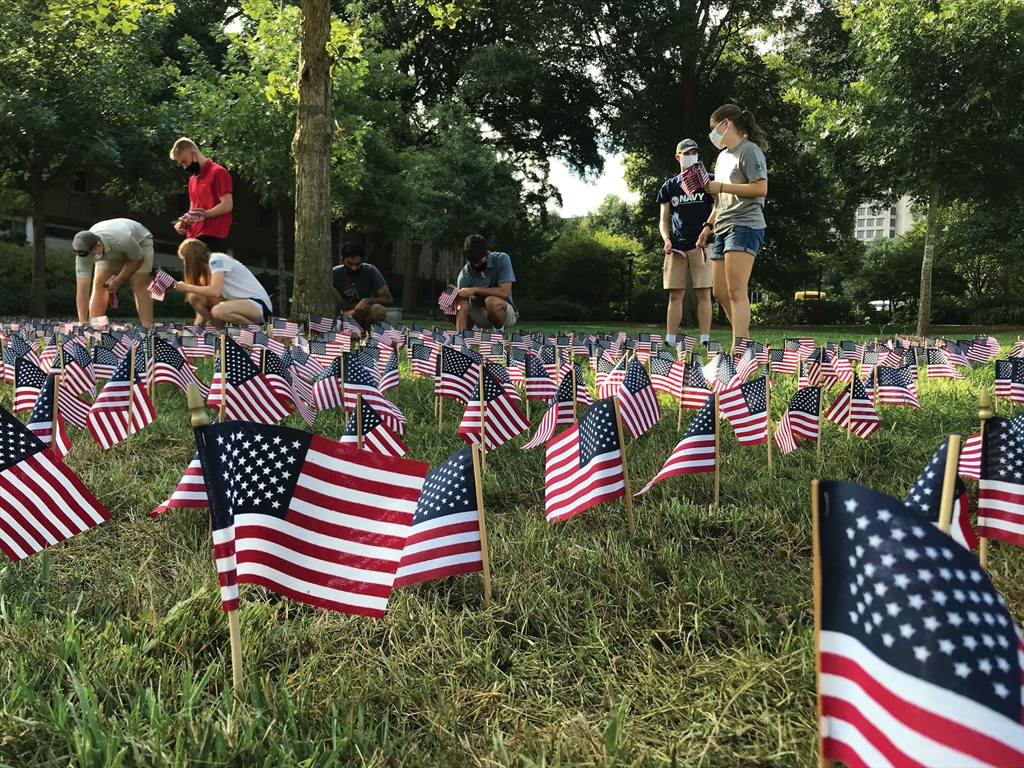
Our Fallen Soldiers
While all those who served sacrificed, some made the ultimate sacrifice to our country. Every September, the Georgia Tech ROTC places American flags in honor of victims of the Sept. 11th terrorist attacks and in honor of 1st Lt. Tyler Brown, Mgt 01, HTS 01, who was killed in action on Sept. 14, 2004, while serving in Iraq. Brown was student body president while at Tech. In addition to his leadership, he was an avid runner. The Tyler Brown Pi Mile course is named in his honor, as well as several scholarships and the ROTC Outstanding Leadership Award.
Stories of Courage
Six Georgia Tech alumni were Vietnam prisoners of war. These vignettes are adapted from a 2001 article, "Tech’s POWs," by Kimberly Link-Wills.
Capt. Render Crayton, TEXT 54 POW 1966 - 1973
“We spent a lot of time trying to figure out ways of beating the system, of communicating with other people…. [The hardest part was] the sheer boredom of the whole thing, interspersed with moments of sheer terror.” Crayton retired as a Navy captain in 1984.
Col. Richard Dutton, IE 51 POW 1967–1973
Dutton and Capt. Glenn Cobeil were struck by an enemy missile while flying an F-105. “[When we] arrived at the Hanoi Hilton [Hoa Lo Prison]...Glenn was alive,” he wrote in a compilation of stories collected for the POW Network. “I never saw him again.”
Capt. Jim Hickerson, CE 56 POW 1967–1973
“That experience taught me a whole lot about me and about my country, a lot more than I probably ever would have known if I hadn’t gone through it.”
LT. Mark Gartley, PHYS 66 POW 1968–1972
Shot down by friendly fire, Gartley was released in 1972 thanks to efforts from his mother, an anti-war activist. “I was in a difficult situation,” he said of the choice to either go home or follow the code of conduct that stated that no soldier could honorably return home unless all prisoners were released. “I made that choice the best I could.”
LT. Col Orson Swindle, IM 59 POW 1966–1973
“When I left home, my son had just turned four. When I returned home, he had just turned 11.” Swindle received two Purple Hearts, two Silver Stars, and two Bronze Stars.
Col. Wayne Waddell, EE 56 POW 1967–1973
Waddell spent some of his time as a POW with Jim Hickerson, who happened to be a fraternity brother from Tech. “Hickerson and I slept side by side, elbow to elbow. We had about 20 inches each…. We did a lot of reliving of our Georgia Tech days.” Waddell earned two Silver Stars.
This story has been updated since its original publication in 2021 to include Tech’s newest Medal of Honor recipient Ralph Puckett Jr.
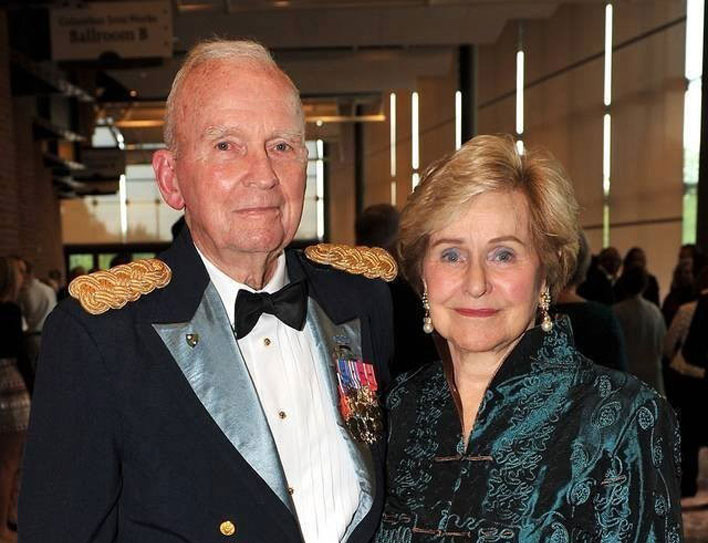 On May 21, 2021, Puckett was awarded the Medal of Honor for his heroic actions while serving as commander of the Eighth Army Ranger Company during the Korean Conflict in 1950.
On May 21, 2021, Puckett was awarded the Medal of Honor for his heroic actions while serving as commander of the Eighth Army Ranger Company during the Korean Conflict in 1950.
Puckett attended classes at Georgia Tech in 1947. He graduated from the U.S. Military Academy, West Point in 1949 and was assigned to Japan where he became the commander of the only Ranger company at the time. He was responsible for preparing the Rangers for combat in a short period of time.
In Korea, Puckett’s company of 57 Rangers was part of an offensive strategy to advance into the north. They were ordered to secure Hill 205 near Unsan, Korea. Fighting in freezing temperatures with limited supplies, his company fought off waves of Chinese soldiers well into the night and early morning hours.
While on the front lines, Puckett ran in front of his command several times, exposing himself to enemy fire so that his Rangers could spot the shooters. He was wounded, but he continued to fight and take care of his company throughout the night. At one point, as he was lying with several gunshot wounds, he told his company to leave him behind and withdraw, but they disobeyed his order and carried him to safety.
Later while recovering in the hospital, Puckett met his wife, Jeannie. They’ve been married for 69 years. He continued to serve on active duty as a Ranger advisor to the Columbian Army and as commander of the B and C teams in the 10th Special Forces Group in Germany. After retiring in 1971, he continued to lead a life of service, becoming the national programs coordinator for Outward Bound, Inc.


